Early Reading Little Wandle Letters and Sounds revisedAt St. Helen's we teach reading through Little Wandle Letters and Sounds revised, which is a systematic and synthetic phonics programme. We start teaching phonics in Nursery through sound discrimination and we follow the progression structure, ensuring that children build on their growing knowledge of the alphabetic code, mastering phonics to read and spell as they journey through school. We have a strong focus on language development for our children because we know that speaking and listening are crucial skills for reading and writing in all subjects, alongside a growing need for children to be exposed to rich vocabulary. For those children whom need extra intervention linked to their phonics we do this through 'Daily Catch-Up', using The Little Wandle Letters and Sounds revised assessments.Through the English Hubs Programme, seven key features have been identified as characterising phonics teaching in highly successful schools, no matter which validated phonics programme is being used. These are:
- direct teaching in frequent, short bursts
- consistency of approach
- secure, systematic progression in phonics learning
- maintaining pace of learning
- provided repeated practice
- application of phonics using matched decodable
- early identification of children at risk of falling behind, linked to the provision of effective keep-up support
How does the Little Wandle programme meet the above criteria? Find out here:Little WandleReading Approach Foundations for Phonics within Nursery - We believe the importance of getting children off to a good start with reading cannot be overstated. The teaching of Early Reading starts from Nursery at St. Helen's. We provide a balance of child-led and adult-led experiences for all children that meet the curriculum expectations for 'Communication and Language' and 'Literacy'. These include:
- Sharing high quality stories and poems
- Learning a range of Nursery rhymes and action rhymes
- Activities that develop focused listening and attention, including oral blending
- Attention to high quality language
Through use of Little Wandle's Love of Reading programme, we ensure that Nursery children are well prepared to begin learning grapheme-phoneme correspondences (GPCs) and blending in Reception. We understand that key features of a rich curriculum which are essential to Phase One and beyond are the range and depth of language experienced by the children. We exploit the power of story, rhyme, drama and song to inspire children's imagination and interests, thus encouraging them to use language. We also ensure parents understand the importance of building those foundations and know how to help at home by hosting Love of Reading Workshops for parents and information booklets. 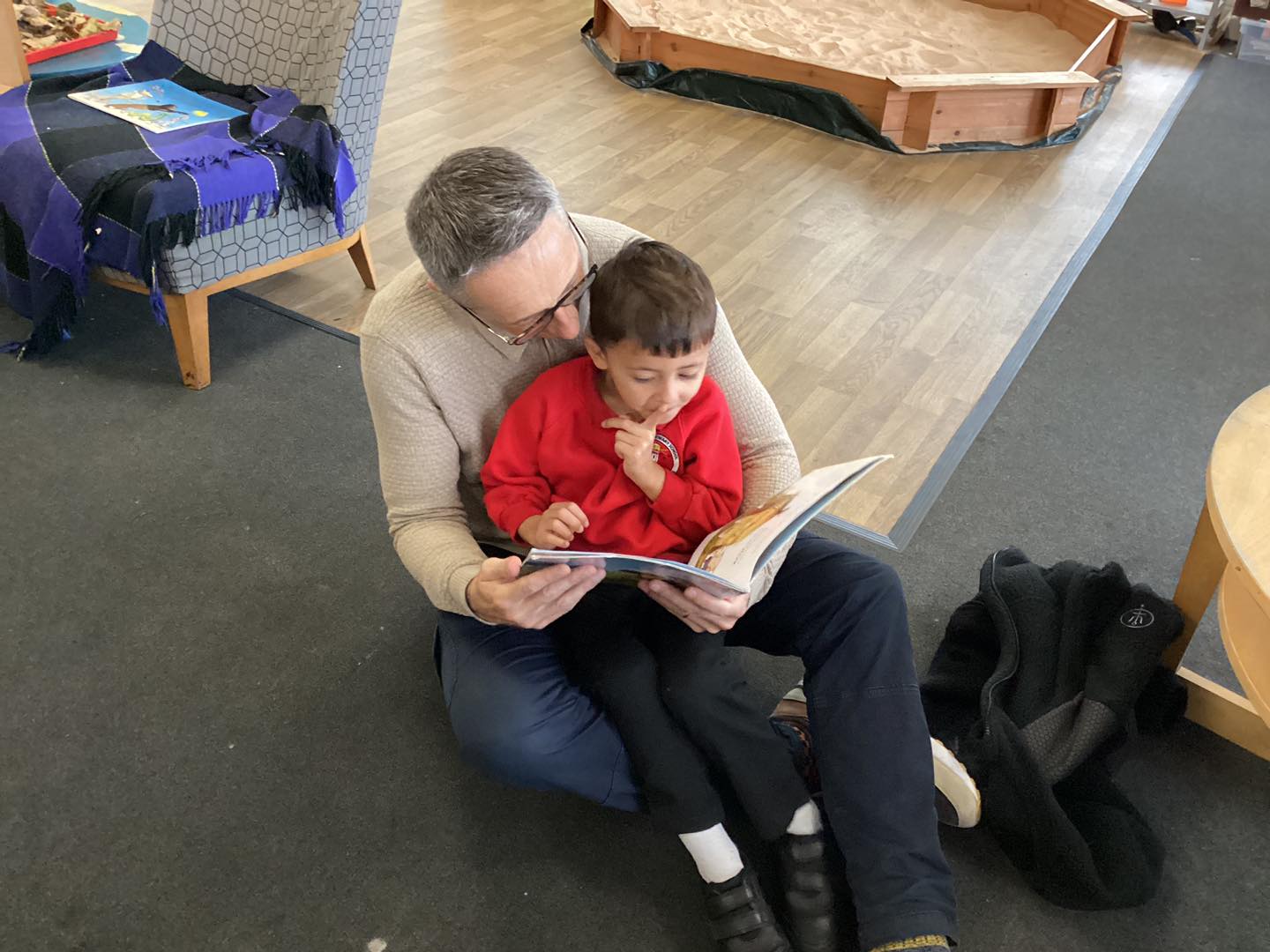 Daily Phonics lessons in Reception and Year 1We teach Phonics for 30 minutes a day. In Reception we build from 10 minute lessons, with additional daily oral blending games, to the full length lesson as quickly as possible. Each Friday is used to review the week's teaching to help children become fluent readers. We follow the Little Wandle Letters and Sounds Revised expectations of progress. Children in Reception are taught to read and spell using Phase 2 and 3 GPCs and words with adjacent consonants (Phase 4) with fluency and accuracy. Children in Year 1 review phase 3 and 4 and are taught to read and spell words using Phase 5 GPCs with fluency and accuracy.For support with terminology, please follow the link below:Little Wandle TerminologyDaily 'Keep-up' lessonsAny child who needs additional practise has daily keep up support, taught by a trained adult. Keep-up lessons match the structure of class teaching and use the same procedures, resources and mantras but in smaller steps with more repetition, so that every child secures their learning. Home ReadingThe decodable reading book is taken home to ensure success is shared with the family. Reading for pleasure books also go home for parents/carers to share and read together with their child. We use the Little Wandle Letters and Sounds revised parents resources to engage families and share information about phonics, the benefits of sharing books, how children blend and other aspects of our provision, both online and through workshops. Parent Information Booklet for Little Wandle Letters and Sounds - ReadingSupporting Parents with Phonics and Reading In addition to this, we send home grapheme-phoneme cards, word cards to blend and tricky word cards so that children can continue to practise at home. We ask parents/carers to make a comment should they see that their child is struggling with their words cards, so that we can intervene in school. Reading AssessmentLittle Wandle Letters and Sounds RevisedAssessment is used to monitor progress and to identify any child needing additional support as soon as they need it. Assessment for learning is used:
Daily Phonics lessons in Reception and Year 1We teach Phonics for 30 minutes a day. In Reception we build from 10 minute lessons, with additional daily oral blending games, to the full length lesson as quickly as possible. Each Friday is used to review the week's teaching to help children become fluent readers. We follow the Little Wandle Letters and Sounds Revised expectations of progress. Children in Reception are taught to read and spell using Phase 2 and 3 GPCs and words with adjacent consonants (Phase 4) with fluency and accuracy. Children in Year 1 review phase 3 and 4 and are taught to read and spell words using Phase 5 GPCs with fluency and accuracy.For support with terminology, please follow the link below:Little Wandle TerminologyDaily 'Keep-up' lessonsAny child who needs additional practise has daily keep up support, taught by a trained adult. Keep-up lessons match the structure of class teaching and use the same procedures, resources and mantras but in smaller steps with more repetition, so that every child secures their learning. Home ReadingThe decodable reading book is taken home to ensure success is shared with the family. Reading for pleasure books also go home for parents/carers to share and read together with their child. We use the Little Wandle Letters and Sounds revised parents resources to engage families and share information about phonics, the benefits of sharing books, how children blend and other aspects of our provision, both online and through workshops. Parent Information Booklet for Little Wandle Letters and Sounds - ReadingSupporting Parents with Phonics and Reading In addition to this, we send home grapheme-phoneme cards, word cards to blend and tricky word cards so that children can continue to practise at home. We ask parents/carers to make a comment should they see that their child is struggling with their words cards, so that we can intervene in school. Reading AssessmentLittle Wandle Letters and Sounds RevisedAssessment is used to monitor progress and to identify any child needing additional support as soon as they need it. Assessment for learning is used:
- daily within class to identify children needing keep-up support
- weekly in the review lesson to assess gaps, address these immediately and secure fluency of GPCs, words and spellings.
Summative assessment is used every six weeks to assess progress, to identify gaps in learning that need to be addressed, to identify any children needing additional support and to plan keep-up support that they need. SLT use the assessment tracker to narrow attainment gaps between different groups of children and so that any additional support for teachers can be put into place.Children in Year 1 sit the Phonics Screening Check which is completed in June each year. Any child not passing the check re-sits it in Year 2. As children move into Key Stage 2, provision is made for those children still requiring daily phonics. Prior to the check, St Helen's host a Year 1 Phonics workshop, which gives parents information about how they can support their children at home with phonics.
How do children practice and learn to read at St Helen's Primary School?
At St Helen's, we know that in order to be able to read, children need to be taught an efficient strategy to decode words. That strategy is phonics. Phonic decoding skills must be practised until children become automatic and fluent reading is established.
Fluent decoding is only one component of reading. Comprehension skills need to be taught to enable children to make sense of what they read, build on what they already know and give them a desire to want to read. Reading increases children's vocabulary because they encounter words they would rarely hear or use in everyday speech. Furthermore, children who read widely and frequently also have more secure general knowledge.
Little Wandle Reading Practice Sessions
When ready, children will begin reading practice sessions; these sessions take place 3 times a week. Children learn to apply their phonics using fully decodable books (matched to their phonetic ability). Each reading practice session has a clear focus - this helps to reduce cognitive load and allow effective learning to take place.
The reading practice sessions have been deisgned to focus on three key reading skills:
- decoding
- prosody - reading with meaning, stress and intonation
- comprehension - understanding of the text
These sessions take place in Reception, Y1 and Y2 (for those pupils still accessing phonics).
Little Wandle Fluency
At St Helen's, we know that being a fluent reader is so much more than having secure phonic knowledge. Little Wandle Fluency is accessed by pupils who have completed their phonics programme and are secure at reading the final level of books. The programme teaches all aspects of reading using vibrant, diverse and engaging chapter books, carefully devised to support children as they progress in reading fluency through Year 2 - 3 and beyond if necessary.
Research identifies the key factors of fluency to be:
- accuracy
- rate/automaticity
- prosody/expression (pauses/intonation)
Over three sessions a week, pupils practise their accuracy of word reading, they have prosody modelled in sessions by an adult to develop their expression and intonation, and participate in dialogic talk to 'think together' and build comprehension skills. By using this programme, we ensure that every child can become a confident, fluent and motivated reader.
Accelerated Reader
In Key Stage 2, when children are ready, they move onto our Accelerated Reader scheme. As part of this programme, children receive a levelled, self-chosen book.
Accelerated Reader (AR) uses both STAR Reading assessments and Accelerated Reader Quizzes to monitor and track the progress of pupils’ reading which begins in Y2. STAR Assessments are used at interim points throughout the year to track pupils’ progress and provide a ZPD (Zone of Proximal Development) score. This is then used to indicate the book banding range of the child. Accelerated Reader Quizzes are used to check pupils’ understanding of each text they have read. The assessment periods are outlined below:
| |
Assessment Period |
| STARS Reading |
Each Half Term |
| Accelerated Reader Quizzes |
After reading each book |
Children will be expected to complete an independent quiz after the completion of each book. The child is only able to move onto the next banding within their ZPD once they have demonstrated they can accurately comprehend the text. This is outlined below:
| Accelerated Reader Quiz Score |
Action |
| 100% |
Move onto the next book banding within their ZPD range |
| Below 100% |
Pupils must remain on the current book banding |
| 3 consecutive scores of 80% + |
Move onto the next book banding within their ZPD range |
Teachers and Teaching Assistants monitor the progress of pupils using a class reading log. Teaching Assistants are expected to monitor the log each week to identify those that have not completed quizzes within the last two weeks. If a child has not completed a quiz within the last two weeks, a date will be given to be completed by and teachers may identify the pupils as daily readers to ensure that they continue to make expected progress.
Reading Mastery
Each class, from Y2-Y6 engages in Reading Mastery sessions. This is usually completed as a whole class with a focus on a particular text or an extract from a supplementary text (mapped for the whole school). Children are encouraged to 'book talk' around the text, questioning, summarising, predicting and focusing on developing key vocabulary. These skills are developed throughout the week, with a priority on building background knowledge to access the text and develop comprehension strategies, whilst also engaging in a range of strategies such as paired reading, echo and choral reading to build on (and maintain) reading fluency skills.
Whole School Wider Reading:
At St Helen's, reading is championed, valued, respected and encouraged. Although this is led by the Senior Leadership Team, it is advocated by every pupil, parent/carer and staff member. We have a Staff Book Club, and prioritise reading as a staff, and complete regular CPD for staff on Book Talk and Reading for Pleasure to ensure this is a priority at all times.
Daily Story Time offers an exciting experience where pupils in every class are read to and can revisit their favourite stories regularly. There is a range of quality texts used in this session which has been carefully planned for to ensure pupils are provided with a rich and varied reading diet, and also are involved in the choice of the story too. We also have an annual theatre company performance of a classic literature text to bring those mapped stories to life for our pupils and give them the experience of live theatre regularly.
Reading events are celebrated annually such as World Book Day and National Poetry Day. We make links with local authors so that pupils can experience writing from their own context, as well as organise events to meet authors of the texts they have studied such as Michael Morpurgo and Tom Palmer, motivating pupils as writers and readers.
The St Helen's Bedtime Story event is held termly. This involves the whole school and parents invited to share in bedtime story reading and complete age-appropriate activities. This event is very popular and develops a love of reading within families and engages parents and the wider community.
Our appointed Reading Influencers ensure that books are shared with pupils based on their interests (in secret!) and they also provide our Home Reading Baskets to pupils across key stages who can enjoy the books and treats in the box over the weekend and share with their families. The role of our Reading Influencers is also to participate in shared reading across the school, and be an ambassador for reading for pleasure for all pupils.
Reading areas have been established in every classroom to offer pupils the opportunity to read for pleasure and can recognise them in any classroom. Pupils have been given the opportunity to organize and be responsible for their book selection to improve care and quality of books. Classrooms use display boards and spaces to bring books that are whole class texts ‘alive’. 3D displays and themed books are readily available to ensure pupils are enthusiastic about their text and creates triggers to remember key parts in the story.
Free Little Library
As part of our ongoing efforts to build the profile of reading and the opportunities for reading across the school, we are delighted to officially open our first Free Little Library. You may remember a newsletter last year, calling out for help to create the library. Thankfully, local company Hunters Home Improvements came to the rescue and built out first, fabulous Free Little Library.
The Free Little Library can be found on the KS2 playground and is available for pupils to access during the day, but more importantly for parents and families to access whenever they want to. The library is filled with high-quality literature from award-winning authors, meaning you can guarantee a great read at home as a family.
The books found within the library are a great example of the type of books that we want children in KS2 to be reading, but also have them read to them by family members as a shared experience.
Books can be taken at any time, by anyone. All that we ask is that books are returned in the same condition that they are taken.
 Daily Phonics lessons in Reception and Year 1We teach Phonics for 30 minutes a day. In Reception we build from 10 minute lessons, with additional daily oral blending games, to the full length lesson as quickly as possible. Each Friday is used to review the week's teaching to help children become fluent readers. We follow the Little Wandle Letters and Sounds Revised expectations of progress. Children in Reception are taught to read and spell using Phase 2 and 3 GPCs and words with adjacent consonants (Phase 4) with fluency and accuracy. Children in Year 1 review phase 3 and 4 and are taught to read and spell words using Phase 5 GPCs with fluency and accuracy.For support with terminology, please follow the link below:Little Wandle TerminologyDaily 'Keep-up' lessonsAny child who needs additional practise has daily keep up support, taught by a trained adult. Keep-up lessons match the structure of class teaching and use the same procedures, resources and mantras but in smaller steps with more repetition, so that every child secures their learning. Home ReadingThe decodable reading book is taken home to ensure success is shared with the family. Reading for pleasure books also go home for parents/carers to share and read together with their child. We use the Little Wandle Letters and Sounds revised parents resources to engage families and share information about phonics, the benefits of sharing books, how children blend and other aspects of our provision, both online and through workshops. Parent Information Booklet for Little Wandle Letters and Sounds - ReadingSupporting Parents with Phonics and Reading In addition to this, we send home grapheme-phoneme cards, word cards to blend and tricky word cards so that children can continue to practise at home. We ask parents/carers to make a comment should they see that their child is struggling with their words cards, so that we can intervene in school. Reading AssessmentLittle Wandle Letters and Sounds RevisedAssessment is used to monitor progress and to identify any child needing additional support as soon as they need it. Assessment for learning is used:
Daily Phonics lessons in Reception and Year 1We teach Phonics for 30 minutes a day. In Reception we build from 10 minute lessons, with additional daily oral blending games, to the full length lesson as quickly as possible. Each Friday is used to review the week's teaching to help children become fluent readers. We follow the Little Wandle Letters and Sounds Revised expectations of progress. Children in Reception are taught to read and spell using Phase 2 and 3 GPCs and words with adjacent consonants (Phase 4) with fluency and accuracy. Children in Year 1 review phase 3 and 4 and are taught to read and spell words using Phase 5 GPCs with fluency and accuracy.For support with terminology, please follow the link below:Little Wandle TerminologyDaily 'Keep-up' lessonsAny child who needs additional practise has daily keep up support, taught by a trained adult. Keep-up lessons match the structure of class teaching and use the same procedures, resources and mantras but in smaller steps with more repetition, so that every child secures their learning. Home ReadingThe decodable reading book is taken home to ensure success is shared with the family. Reading for pleasure books also go home for parents/carers to share and read together with their child. We use the Little Wandle Letters and Sounds revised parents resources to engage families and share information about phonics, the benefits of sharing books, how children blend and other aspects of our provision, both online and through workshops. Parent Information Booklet for Little Wandle Letters and Sounds - ReadingSupporting Parents with Phonics and Reading In addition to this, we send home grapheme-phoneme cards, word cards to blend and tricky word cards so that children can continue to practise at home. We ask parents/carers to make a comment should they see that their child is struggling with their words cards, so that we can intervene in school. Reading AssessmentLittle Wandle Letters and Sounds RevisedAssessment is used to monitor progress and to identify any child needing additional support as soon as they need it. Assessment for learning is used:
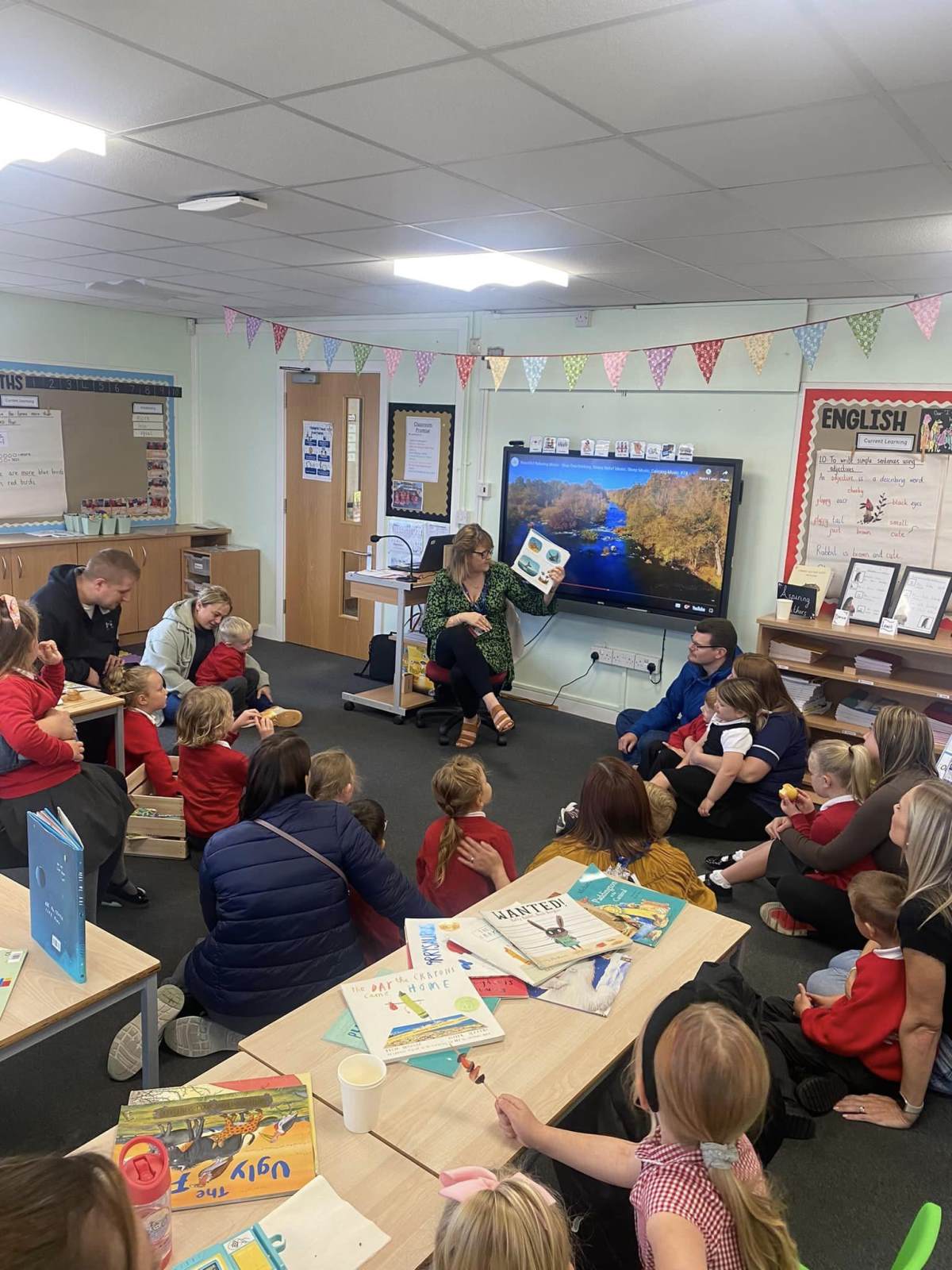
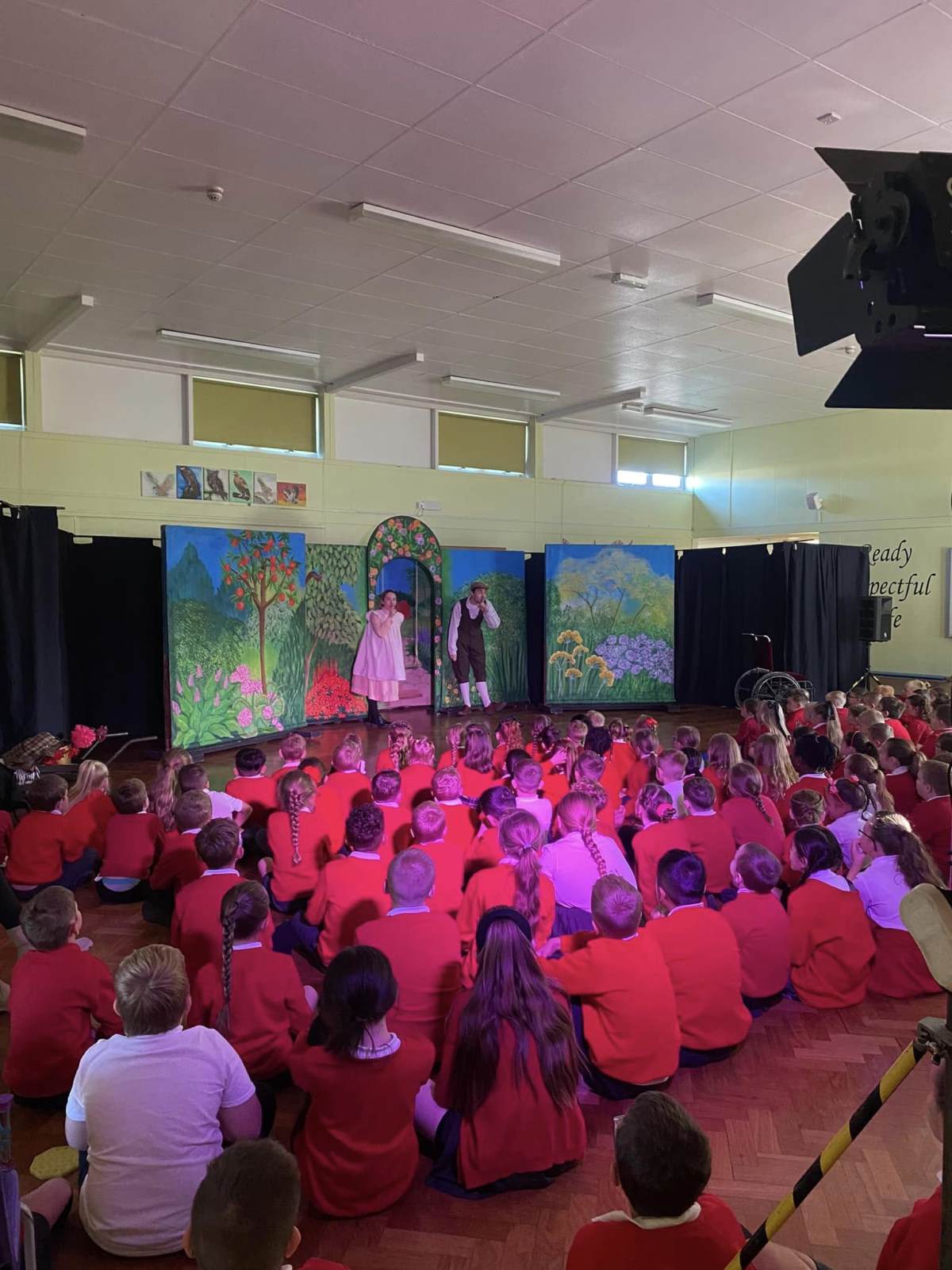
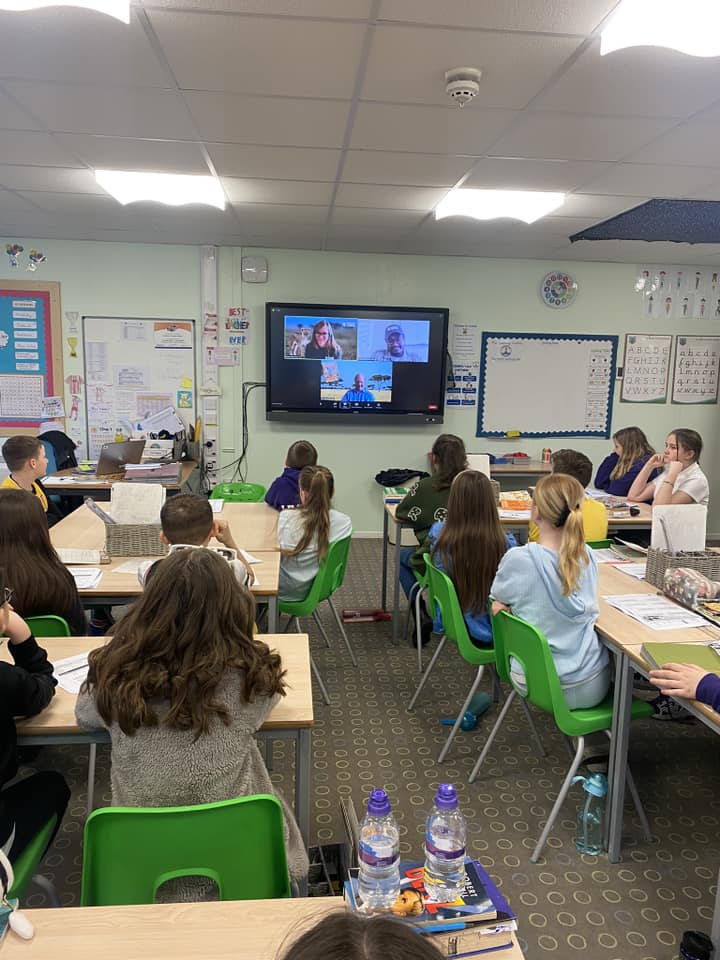
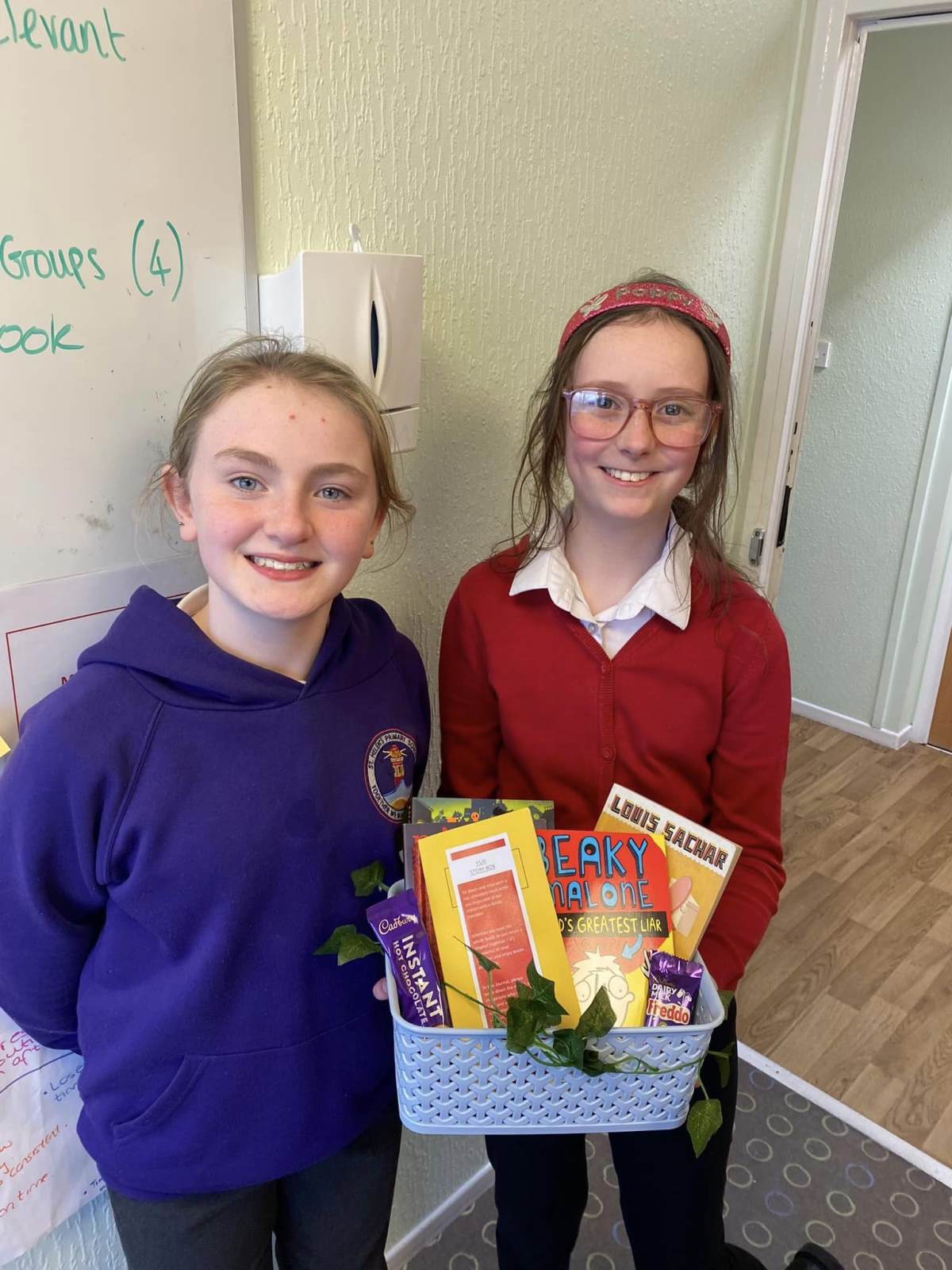
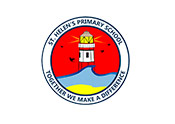


Close